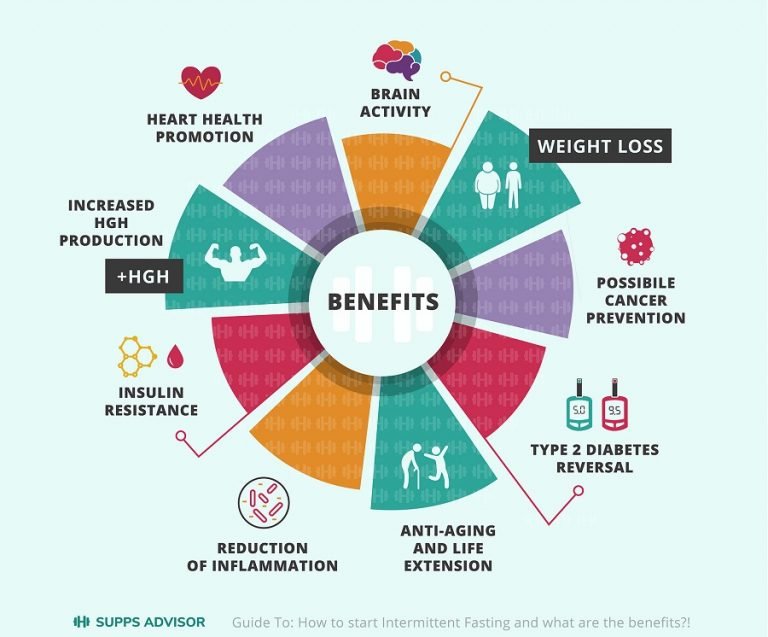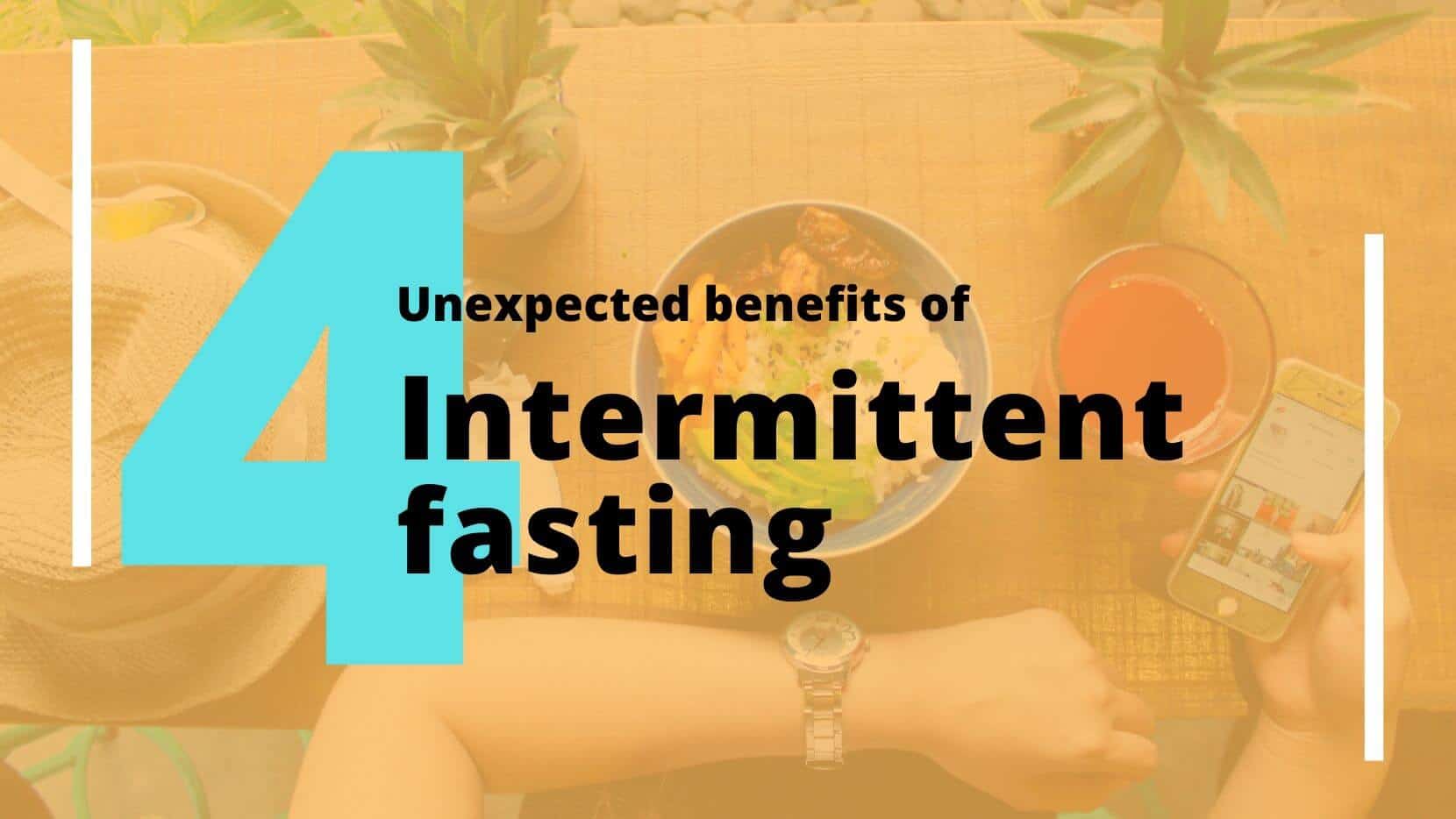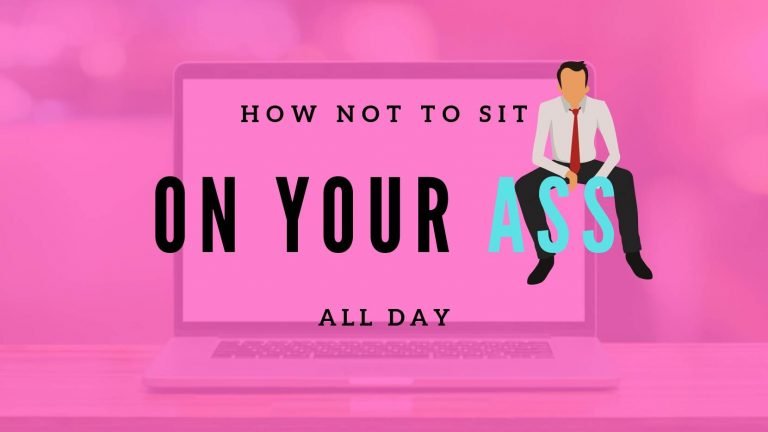The unexpected benefits of 16/8 intermittent (circadian rhythm) fasting
Intermittent fasting is being endorsed by fitness instructors, bloggers and scientists around the world. This post isn’t about its many great direct benefits (more efficient fat burning, especially the even less healthy belly fat, cellular waste removal, cardiovascular system protection and potential lifespan improvement – not bad huh?), but about additional, unexpected benefits of intermittent fasting.

What is intermittent fasting? A quick summary
The idea is based on many studies on rodents that have shown an increased lifespan if their food intake was restricted to some extent, creating a calorie deficit. There are also other methods, like the Japanese Hara hachi bun me (eat until you are 80% full) method, alternate-day fasting or one meal a day (OMAD). Calorie restriction seems to make our body undergo a kind of a clean-up – it has time to reset, primarily reduce your insulin levels giving your body a chance to burn stored fat — all of which leading to major benefits like weight loss and longevity.
There are many ways you can restrict your calorie intake – each requiring a varying level of commitment and willpower. But in recent years, the 16/8 or circadian rhythm intermittent fasting model is gaining popularity – mainly, because it doesn’t require that much willpower and doesn’t interfere with our usual routine too much. Check out this post about various types of intermittent fasting and how to start. It is based around our natural – circadian rhythm, which tells us when we are awake and tired – ready to sleep. You eat from the morning, during an 8-hour window, until the afternoon. You don’t eat anything after this 8-hour window, which gives you 16 hours of fasting, just about enough for your body to do the needed clean-up.
Best thing is, you can pick when the 8-hour window happens – if you’re a morning person, it can start from 7:00 until 15:00. If you prefer to sleep longer, the 8-hour window can start whenever you fancy – 11:00 until 19:00 for example. The only rule is that you only eat during the consecutive 8 hours, then you fasts for 16 hours.
Unexpected benefits of 16/8 intermittent fasting
You will sleep better
Because you will limit your eating to your active hours – an 8-hour window during the day, you will not eat before going to bed. It is known that you are not only much more likely to gain fat when eating before bed time (perhaps not for the reason you think, but nevertheless), but also suffer indigestion or restless legs syndrome. It’s not that eating before bed causes this, it’s eating eating the wrong stuff – chocolate, fatty snacks, carbs. And we both know that you don’t crave a bowl of spinach before sleep, but chocolate or some crisps are always at hand.
Circadian rhythm intermittent fasting stops you eating a few hours before sleep, meaning you avoid any kind of snacking (which mostly involves unhealthy foods) and therefore alleviating many symptoms of troubled sleep or improving the quality of your sleep.
“The enzymes involved in fatty acid oxidation, they’re highly circadian. They know when they’re supposed to be metabolizing glucose,” says Kristen Eckel-Mahan, PhD, who studies sleep and metabolism at the University of Texas Health Science Center at Houston.
Read more about how to sleep better and why is sleep much more important than we previously thought to our health and lifespan in Matthew Walker’s great book Why we sleep.
It makes perfect sense – align your eating habit with your circadian rhythm (your body’s biological rhythm) and it will function better.
You will eat fewer unhealthy foods
Because you don’t have such a long window for eating, you automatically eat the important meals and leave out all the pointless snacks that are often bad for you. This is similar to the quality of sleep benefit above but applies to the entire day. With a shorter time window to eat, you will eat bigger portions. If you make them healthy and balanced – whole foods, high in fibre, healthy fats, low in processed carbs and sugars – you will feel full most of the day, reducing the need to snack.
Between meals, as long as we don’t snack, our insulin levels will go down and our fat cells can then release their stored sugar, to be used as energy. We lose weight if we let our insulin levels go down. The entire idea of IF is to allow the insulin levels to go down far enough and for long enough that we burn off our fat. – Harvard Health
You will improve your willpower
Your willpower is like a muscle – it can be trained. Intermittent fasting is a great way to train your willpower – it’s not too radical, yet it requires some level of self-control (slouching on the sofa at night, trying not to succumb to those chocolate cravings). It’s very regular – same time, every day (although to be able to sustain it longer, it’s ok to allow yourself a cheat day, when you eat and snack whenever you want). More on how you can train your willpower in Roy F. Baumeister’s book Willpower.
Your stronger willpower will spill over into and help you control other areas of life – relationships, exercise, work.
You will save money
Eating less crap during the day? Snacking less at night and in-between meals? Equals spending less money on unnecessary food – food that doesn’t primarily give you health benefits, but rather just short term lizard brain dopamine boost (which are mainly sugary snacks, high-carb snacks). They cost money but are pointless – give you a sugar rush, followed by a sugar low.
There is a chance that the money you save by not buying crappy snacks will be spent on healthy snacks. This way you might not save money, but your health – which is, I dare say an even better result.
Quick steps to succeed in intermittent fasting
- Stay away from sugars and refined grains. Replace them with fruits, vegetables, beans, lentils, whole grains, lean proteins, and healthy fats (a balanced, plant-based, Mediterranean-style diet).
- Let your body do its magic and burn fat between meals. Don’t snack, move throughout your day (even if you have a sedentary job), be active and work out – build muscle.
- Make it easy and sustainable – choose a simple form of intermittent fasting. Follow your circadian rhythm – limit the hours of the day when you eat, and for best results, make it earlier in the day (between 7 am to 3 pm, or even 10 am to 6 pm) definitely do not eat in the evening before bed).
- Avoid snacking or eating at nighttime, always.






